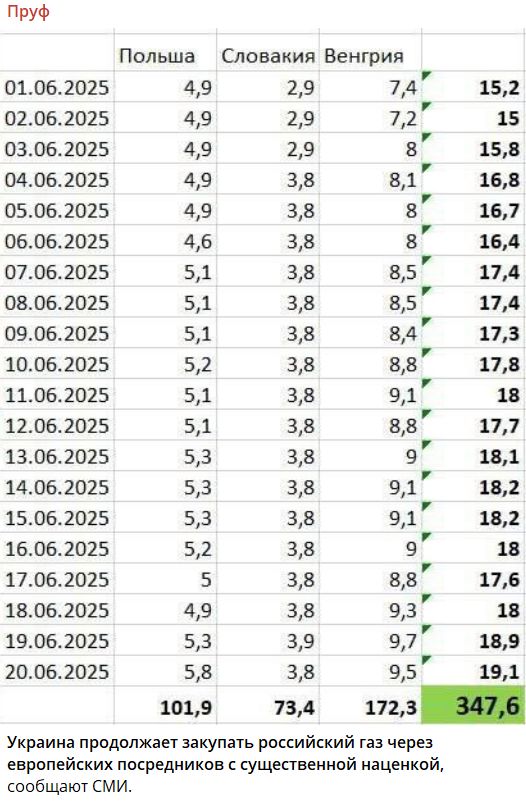Verification within Meta’s Third-Party Fact-Checking Program
Claims that Ukraine continues to purchase Russian gas are being spread. Different posts mention different periods: some indicate the start of Russian gas supplies from June 10, 2025, while others refer to the period from June 1 to June 20, 2025. They also add that most of the gas comes from Hungary and Slovakia, which purchase fuel from Russia.
This is false. Ukraine has not directly imported Russian gas since 2015, and as of January 1, 2025, it stopped its transit. Gas received by Slovakia or Hungary legally ceases to be Russian after crossing their borders.
Screenshot of the post

Screenshot of the post
How does Ukraine import gas?
Since November 2015, Ukraine has not imported Russian gas, although there were direct supplies before that. Currently, Ukraine’s own production and gas imports from European countries cover the volume of gas needed for domestic consumption.
At the end of 2019, NJSC Naftogaz of Ukraine, the Gas Transmission System Operator of Ukraine, and PJSC Gazprom signed a package of agreements to continue the transit of Russian gas through Ukraine until 2024 inclusive. On January 1, 2025, Ukraine stopped Russian gas transit after the relevant agreement expired.
Gas, like any other resource, is a commodity. Ukraine imports it from EU countries, signing contracts not with Russian but with European companies. Legally, the gas belongs to European traders, even if it physically originates from Russia.
According to a report by the Center for the Study of Democracy (CSD, Bulgaria) and the Center for Research on Energy and Clean Air (CREA, Finland), in 2024, the share of Russian gas in Hungary’s and Slovakia’s consumption increased to 70% (compared to 57% in 2021). Overall, imports of Russian pipeline gas by these two countries decreased by only 5.5%, while the rest of the EU reduced imports by 81% compared to the pre-invasion period.
Currently, Ukraine imports gas not only from Hungary and Slovakia. For example, in June 2025, Ukraine purchased 162 million cubic meters of gas from Poland, 265.8 million cubic meters from Hungary, and 111 million cubic meters from Slovakia. Gas imports from these countries are due to geographic convenience and developed infrastructure. For instance, the route from Hungary is the cheapest.
Some of the reverse gas entering Ukraine has Russian origin, but it is practically impossible to determine — gas as a commodity has standardized physical characteristics. At the same time, part of the payment for it may still indirectly reach Russia.
At the same time, the EU is taking steps toward full independence from Russian gas. In particular, they plan to gradually introduce trade restrictions on imports. Purchases under new contracts are proposed to be banned from January 1, 2026; under existing short-term contracts — from June 17, 2026; under long-term contracts — by the end of 2027. Then, imports of Russian liquefied gas will also stop. Exceptions were made for Hungary and Slovakia: they are allowed to import under short-term contracts until the end of 2027.
Why did Ukraine increase imports in 2025?
Russia repeatedly attacked Ukraine’s gas infrastructure, affecting both production facilities and underground gas storage sites. On April 29, 2025, Ukrainian Prime Minister Denys Shmyhal reported that Ukraine’s gas production infrastructure lost almost 50% of total output. Before massive attacks on gas facilities, Ukraine largely covered its needs with domestic gas. For example, the country passed the winter of 2023–2024 without imports.
Ukraine wants to diversify its gas supplies. This includes the Trans-Balkan gas pipeline, which can operate without Russia. It can also be used in reverse mode to supply American gas from the Greek LNG terminal “Revithoussa” to the border with Ukraine.
Attention
The authors do not work for, consult to, own shares in or receive funding from any company or organization that would benefit from this article, and have no relevant affiliations

